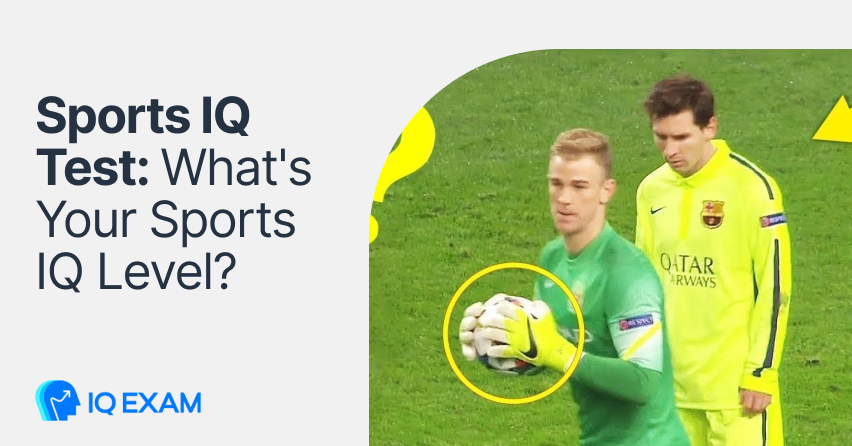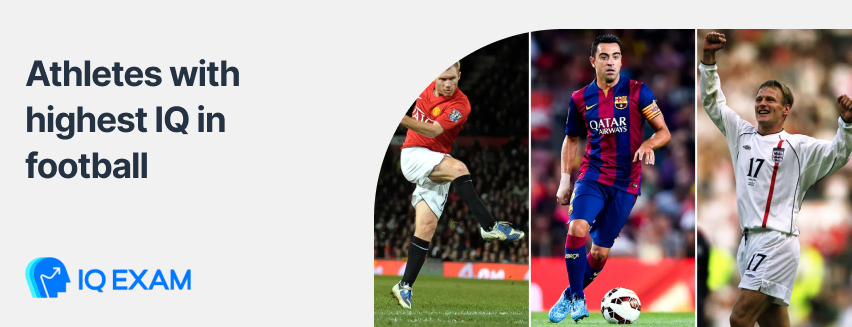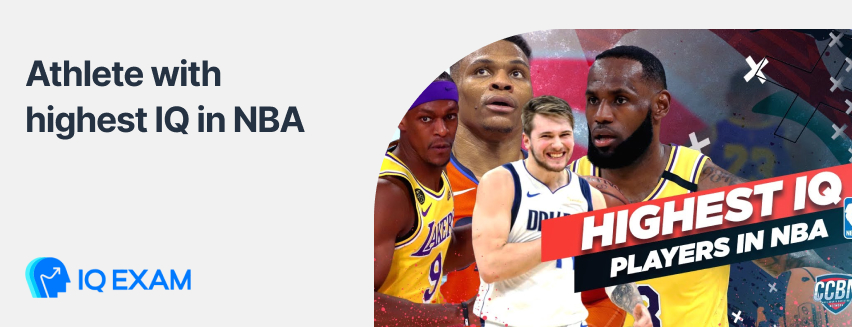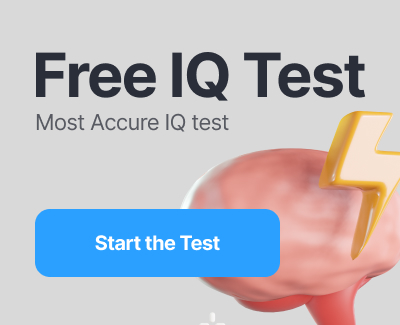
Sports IQ tests measure the ability of an individual to understand sports, the strategies, and the rules that govern them. Most sports IQ tests are written specifically for those familiar with the sport being tested. They often measure the knowledge and skills associated with the technical aspects of a sport.
Sports intelligence combines cognitive abilities, skills, and knowledge that help an individual function well in a given sports environment. It is the ability to recognize patterns, plan, and strategize during gameplay to achieve success. Sports IQ is highly valued, especially in team sports, where it can significantly impact a team’s performance.
What is Sports IQ, and why is it important?
Sports IQ is used in different sports fields and by sports athletes. It analyzes how a sports player can get along with various conditions. A big part of IQ sport is a player’s decision in a challenging situation. Sports IQ defines the performance of athletes and increases when a team works together for some time. Like all other teamwork, team players should trust each other, know each other, be comfortable with each other, and be able to anticipate each other’s acts and feelings.
The productivity of a team depends on respect, acceptance, and trust. Increasing the sports IQ between team players needs team coherence. For example, this will let a football player in receiving position understand the best place for him to provide the best pass to a player on the quarterback field to get the best result. A high sports IQ is only possible with coherence and an experienced team.
Sports IQ has many benefits. Improved sports IQ increases an athlete’s accuracy and decision-making capabilities while playing, allowing them to understand their opponent’s moves better. It also boosts strategy and leadership abilities, allowing the athlete to more effectively manage the flow of a game and make the appropriate adjustments as needed.
Three primary components must be considered when assessing an individual’s sports IQ level: cognitive ability, game knowledge, and problem-solving ability.

Questions are generally framed around gathering and evaluating information, recognizing patterns, and making fast and accurate decisions to measure cognitive ability.
Game knowledge is accurately recalling and understanding a game’s rules, regulations, and strategies. Finally, problem-solving ability measures an individual’s ability to identify, analyze, and solve critical game-related issues.
The center of sports IQ tests is the set of questions that cover a wide range of topics, including athletes, sports rules, strategies, and sports knowledge. Questions can be either basic knowledge or more complex, measuring the cognitive skills essential to playing well in a particular sport.
Most sports IQ tests provide users with basic information about their performance. They can also provide helpful feedback that can be used to identify areas that need improvement. Scores are based on the number of questions answered correctly. Still, they are also affixed against a scoring system specific to the sport being tested.
Sports IQ tests give people an indication of their current level of understanding of a game or sport. It allows them to assess what areas of their game are vital and which need more work. The test also indicates a person’s ability to problem solve, analyze, and strategize, which are crucial to successful performance in any sport.
How do you measure sports intelligence?
Sports intelligence is a relatively new concept widely discussed and studied in athletics. It has been defined as the ability to think quickly, assess a situation accurately, and act accordingly for optimal sports performance. It is a cognitive ability that encompasses understanding the current game situation and anticipating what the opposing team may do. This type of intelligence is highly valued in sports and can be the difference between winning and losing.
When measuring sports intelligence, several factors are taken into consideration. First, there is the physical aspect of playing sports. An athlete’s physical performance directly impacts their overall performance in a game. An athlete’s physical ability is essential for success. Factors such as agility, speed, strength, and accuracy are all assessed in determining an athlete’s physical capability.
Next is the mental aspect of sports intelligence, which involves an athlete’s ability to think quickly and accurately about game situations. An athlete must be able to assess the current game situation and anticipate the opponent’s next move to succeed. So the athlete requires an astute understanding of strategic gameplay, an awareness of the strengths and weaknesses of each team, and the ability to recognize patterns and predict future plays.
The next aspect of sports intelligence is attitude. Attitude plays a significant role in determining sports performance. Factors such as focus and discipline, confidence, humility, and resilience are considered when assessing an athlete’s attitude toward sports. The right attitude is essential for success in sports, and athletes must be adequately motivated and prepared to handle adversity and other challenges.
Finally, there is the social aspect of measuring sports intelligence, which involves assessing an athlete’s ability to interact with teammates, coaches, and opponents in a positive manner. These abilities also include communicating effectively, maintaining a sense of team unity, and taking on leadership roles. Social intelligence can be the difference between a great and a winning team.
What is the average IQ of sports players?
Sports have an undeniable effect on people’s identity and lifestyle. Athletes are dedicated and hardworking, often rising to fame and the top of their field. Intelligence is an often overlooked part of sports, yet significantly impacts performance.

IQ is a measurement scale used to evaluate intelligence, aptitude, and mental agility. IQ has been tied back to success with sports due to the brain-body connection that is essential in complex plays and strategies. Some believe, however, that sports players do not need a high IQ and that higher IQs can become distracting and weaken performance. This debate brings us to an important point – what is the average IQ of sports players?
There is no definitive answer as it varies depending on the athlete and sport. IQ scores also range from the high 70s to the mid-140s, so a blanket statement of expected IQ is difficult to pinpoint. With that being said, research suggests that the average IQ of basketball players ranges from 105-110, lower than the average of 115-120 in the general population. Similarly, the average IQ score of football players is reportedly 105-110, compared to the available standard of 100-105. The IQ of hockey players differs slightly, with 120 being the average IQ range. Unsurprisingly, sport-related performance and skill are significant contributors to IQ, with the fastest athletes having the highest scores in some cases. Some of these athletes with the highest IQs are as below:
- Tennis player Novak Djokovic, with an IQ of 140
- Golfer Tiger Woods with an IQ of 155
- Swimmer Michael Phelps, with an IQ of 145
Despite the higher average IQ scores in some sports, intelligence plays an indirect yet vital role in success. It has been said that “practice makes perfect.” Yet, intelligence is critical in making informed decisions and forming strategies, even in sports. In this instance, intelligence can be seen as a “mental skill” that a coach or player can use to analyze and build performance. However, some argue that it is difficult to measure the benefit of intelligence on a broad scope, making games of chance unpredictable.
With all that in mind, the average IQ of sports players remains debatable. Even though IQ scores may vary from sport to sport, the prominent use of intelligence is undeniable. Intelligence gives players a competitive edge, enabling informed and calculated decisions during gameplay. As such, IQ should not be seen as a final determiner of success but rather as a helpful tool in the right hands.
To Sum it up
In conclusion, sports intelligence is a highly valued cognitive ability in sports. It can be measured using physical performance, mental capabilities, attitude, and social skills. Measuring sports intelligence is essential for understanding an athlete’s potential and helping them to achieve their goals.
The whole point of sports IQ is that an athlete should have enough knowledge and mastery skills in that specific sport. Professional athletes dedicate their time and energy to becoming an expert in what they do. They understand the game and recognize its rules and structure.
With proper study and practice, they could gain a personalized understanding of emotional, muscular, and intuitive knowledge and mastery to always stay at the right place at the right time. This definition might sound like a stereotype, but this is the actual definition of being a professional expert in what you do.
